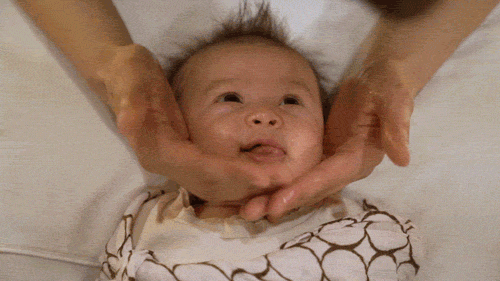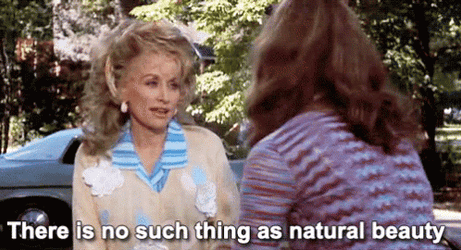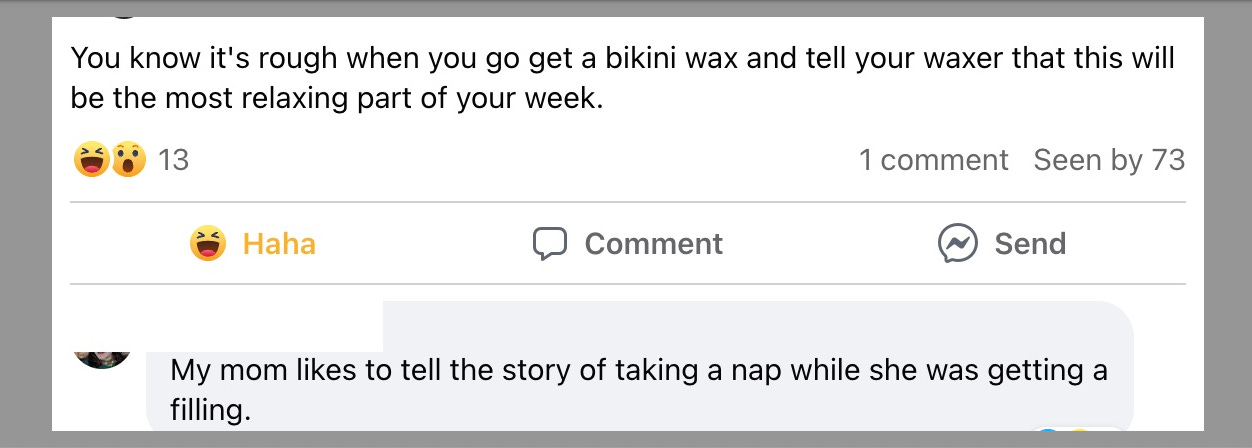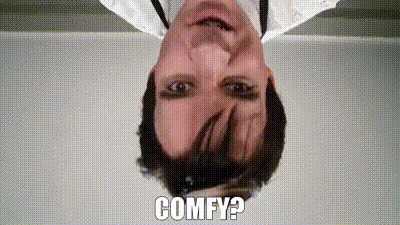Looking good: Self-care or other-care? Pain or pleasure?
A chat with Elise Hu, author of "Flawless"
I don’t think of myself as a beauty junkie, but I am a middle-aged human woman. I have my serum (and my lash serum) and my retinoid and my fancy sunscreen, and I have had a little of this burned off and a little of that injected. So when I got a press release about NPR’s Elise Hu’s new book Flawless: Lessons in Looks and Culture from the K-Beauty Capital, out tomorrow, I eagerly requested a copy.
I was first curious about learning more about how South Korean beauty trends affect moms and kids (daughters in particular), but I got pulled into the whole book. Hu’s reporting, based on her time working and raising kids in Seoul, provides a fascinating glimpse at how one particular part of the world approaches the industry of beauty and how the populace treats women’s looks as a public concern. The book will make you think about how Korean beauty culture relates to your own self-esteem, how you talk to your own children about aesthetics, what parts of beauty maintenance are actually pleasurable and what are painful expensive timesucks we have been told we must endure in order not to be offensive to others.
Parts of your book made me want to go to a Korean beauty supply store and buy a ton of products. What is your beauty routine these days?
My routine is cleansing, moisturizing, and sometimes I use the Missha Time Revolution Essence, and when I’m on a long flight, I wear the Innisfree Green Tea Sleeping Mask. What I've gotten really militant about is sunscreen. That practice I really owe to my lessons from Korea.
You have three daughters and went through pregnancy and postpartum twice during your time in South Korea. How do women in South Korea present themselves when they are pregnant? Do they like to show off their bellies as much as some women do here?
There was a real taboo to gaining too much weight while pregnant. There was also less confidence about showing off your belly. They prefer loose-fitting clothing that doesn’t hug the belly.
The toughest thing was navigating spaces and being different. You don’t want to enter a room and hear people say, “Look at your difference!” I entered so many male-dominated rooms. The gender disparity in Korea is quite striking, and there are women lacking in major spheres of influence. Any time I covered those issues there I was just waddling around pregnant, and I’d get called out for it. It’d be a backhanded compliment thing. “Ooh, what a supermom!” “You’re working; what’s your husband doing?” “Where’s the bureau chief?” It happened again and again. It’s hard to be conscious of being part of an outgroup. It raised my self-consciousness.
How do South Koreans approach postpartum looks as well? Is it like in the States where you get praised (and then sometimes also vilified) for snapping back right after a baby is born?
Two months after the baby was born, I had to go back to work. That was American. I was under a lot of pressure from the foreign desk editor. I remember doing a shoot for a video and standing in the lobby of a spa finishing that baby facial shoot. The two Koreans in the lobby spoke without me, and the spa owner was trying to tell my photographer to translate. There were all these wraps available to help me lose weight to help slim down my belly and thighs. They call it “baby care,” getting me to discipline my body in a certain way after I’d had a kid.
It was so awful wearing a nursing dress and having my arms out. It was as if I farted on the subway or something, and everyone moved away from me. It was because I had some minor cleavage.
What is the view towards aging in South Korea? You talk about how revered ajummas are but are women resigned to or look forward to eventually looking the way they are characterized someday?
You delay it as long as possible. It’s culturally understood as someone who is visibly aged, as postmenopausal.
I think there’s so much to celebrate about ajummas. They still care for their bodies, but they do it in a way that celebrates how the body feels rather than trying to assuage their egos or perform for everybody else. Ajummas are known for wearing giant visors and having these wash-and-go perms. They get maligned culturally for this, but if you think about these practices, they make sense. The visors look tacky but prevent sun damage. The perms don’t require a lot of maintenance. It allows them to take pleasure in what their bodies can do. It’s affirmative aging. It’s not finished; it’s driven by intrinsic motivations.
In any punishing beauty culture, our worth is deemed by our appearance. Korea has very exacting standards on what a young woman looks like, and so you see a lot of women in their 40s trying to attain the look they kept in their 30s and younger. You see a lot of frozen faces. It’s a lot of work.
If there’s a meta-theme, it’s that we should think about the work we do on our bodies because beauty culture equates adherence to standards as work. We should think of the work we do on our bodies as labor. It’s costly when it comes to time, energy and money, and possible health risks because these things aren’t completely consequence-free.
If it is labor, we should renegotiate the terms of that labor. In the same way, we talk about childcare and household duty, it takes time to research, to book appointments, to get our hair removed or colored. I’m not like, “Hey, this is a polemic, just stop all your beauty practices,” but be aware and interrogate. You don’t have to drop out completely, but at least consider that your freedom and your time and your energy are valuable.
What beauty rituals do you actually find pleasurable vs. just work?
I enjoy a good night’s sleep more than anything else. I take sleep really seriously. Exercise. I will get a monthly facial in Koreatown. It’s a good deal, I got it as a pack, and it feels nurturing and loving to have someone give me the facial massage part of it. There’s some sort of cryotherapy wand that they run across my face. I have held off on injectables. I love a scalp massage when I get to the salon. I color my hair and add highlights once a year.
Did you learn much about the people who work in beauty? Do aestheticians occupy a different role in South Korea compared to the U.S.?
It’s less racialized in South Korea. There are power dynamics at play here; so many people are immigrants, working these jobs because they must. In South Korea, because 97% of Korea is Korean, a lot of the beauty workers and spa owners are entrepreneurs, so they have a status in society that has more options and choices than a lot of the beauty workers in the United States.
So many of Korean beauty products are rooted in natural ingredients and authenticity—did you learn much about the environmental aspects of these products?
As I was researching, there were little tidbits of trivia that emerged: the hard wax that’s used when we get waxed is a byproduct of oil refineries to be used on our pubes. There is an endless cycle of making these products for consumption so we can then buy them and toss them and buy more.
What do you think Americans can glean from your book? I thought it was really interesting, and parts of it were enraging, but I also wanted to be sensitive about judging something that’s another culture from mine.
I hold up Korea as an example of the future and not something to turn our noses up at. Korea is one of the most wired and digitally savvy societies in the world. There are screens wrapped around buildings and density and a verve and a life to the place that I really miss. Because its cultural exports are some of the best, they are a global leader in film and TV and gaming. Its own visual culture has been carried along with other Korean exports. It’s a harbinger of things to come that are both aspirational in some ways but also worth interrogating.
It does debunk some myths that we have about the West being the leader and the East chasing it. In many ways, Asia is cool and Asian beauty is cool. It’s cool to see West chasing East. What I have an issue with, and I hope the nuance comes out, is where the culture so rigidly defines how women look. I hoped to shine a light on this place where I was living and reporting such that we could see all the ways that we are more alike than we are unalike. It helped me understand my own culture better.
Your daughters are 6, 7 and 10, right? What is their relationship to beauty right now?
Oh gosh. My daughter being pre-pubescent has forced me to think about my role model and how I started thinking about my role models when I was young. The takeaway for me is that we can’t nurture self-worth in our children unless we have learned to nurture it for ourselves.
Shame and appreciation are a reminder of how much we absorb from our own parents. In the US, we like to say, “Your looks don’t matter; it’s what’s on the inside that counts,” but I describe in my book the girls instinctively know what’s up, that looks do matter.
I don’t think it works to say it’s just your insides that count, that it’s just your brains or your bravery. I’m trying to foster, at the end of Flawless, that sense of bodily appreciation for doing and feeling and model that with my kids. So instead of saying to them, “Oh, looks don’t matter,” I ask them why it is that my daughter, my eldest, wants to shave her legs. What do you feel like taking this shampoo quiz will really do for you? Why do you need to get this new cream blush? She’s a girly girl despite me writing this book just feet away. It’s an opportunity to interrogate but also share how I felt uncomfortable about my legs too, or these are the hangups I had with my body.
The other is to remember that we are models, and their self-acceptance starts with their self-acceptance. I don’t linger too much in front of the mirror; I will not get plastic surgery. I focus on the body’s capacity for feeling and doing and cultivate the love of the body that is inside out.
When we try on clothes, instead of saying, “You look so cute in that,” which is my first instinct — I did work at the Gap, after all — now I’m asking things like, “Does it fit? How does it move? Is it scratchy?” My youngest was a reminder of this to me. I asked her why she didn’t wear this green romper I bought her. I was like, “Why don’t you wear that romper anymore? I think you look so great in it!” She reminded me, “Because I have to get naked to pee!”
The whole reason my daughter learned about skin care is not through me but Millie Bobby Brown, now turned skincare influencer of “Stranger Things” fame. Florence by Mills: The teen girls are obsessed with it. My daughter is like, “I love Flo by Mills. It’s specially formatted just for me.” You can see how big beauty is working on these kids. For me, I have to go back to modeling how I don’t do a lot with myself. There’s so much generational trauma. My mom would say, “You’re beautiful at any size,” but she kept a scale in the kitchen. She was showing me without telling me that beauty equated to thinness. Now that I’m a mom, I have to show her that beauty to me doesn’t equate to something physical. It equates to kindness and spiritual beauty, intrinsic worth. The only way for me to do that in terms of modeling is to de-emphasize it and ask, “Why do you want to do this? What do you believe it will do for you? Who does it help? Who else is affected by these projects?”
My mom will make comments like, “Are you going to wear that?” When I was doing the unboxing video for Flawless, she asked me why I didn’t change my pants because I wore jeans with holes in them, and I looked sloppy. Our moms were of a generation with fewer options and choices, and as a result, they had to be defined by their external appearance in a way. Maybe we have the freedom not to be now. I think of my mom and her experience and the weight and her perspective with a lot of comparisons. I also recognize that it had an effect on me, and it’s something I don’t want to continue to pass down. I want us to be good ancestors.
What do your girls think of your book?
They do roll their eyes because they know this is the topic of my reporting for the last few years. My middle daughter questions anytime I put on makeup. “I thought you were against makeup!” My eldest is like, “How did I end up with this mom? Why can’t I just shave my legs like the rest of my friends? Why does this have to be a discussion about the amount of labor by using razors to remove your hair vs. laser or waxing?”
Because of my view that all beauty work ends up being maintenance you have to do and can’t stop.
Make sure to pick up a copy of Elise’s book, check out any of her free events around the country, and check out this fun book giveaway on Instagram.
End credits
Thanks for reading Evil Witches, a newsletter for people who happen to be mothers. New here? Here’s what the newsletter is all about.
If you are not already a paid subscriber, I hope you think about it. You get access to intimate, funny and helpful chats and extra context, plus you sponsor this ad-free content.
The Evil Witches archives live here. If you have any questions, feedback, or suggestions for the newsletter, you can reply directly to this email or leave them in the comments.
Witch Carly runs our Instagram page. I finally got up the nerve to get off Twitter. Not like Twitter and Substack have been friends of late, but your word of mouth means more than ever. If you like this newsletter, please feel free to share it with people you think might like it.
Real quick!
Feeling helpless, enraged by the political climate in the U.S.? You can do something about it. The Evil Witches Giving Circle was part of the effort spearheaded by the States Project that successfully flipped Michigan blue last election. Virginia is in our sights for this year. Virginia, where the NRA is located. Let’s get ‘em. I hope you consider chipping into the circle. Every little bit helps.
Do you have a child in middle school or high school who has started using cannabis? A reader wrote in looking for advice/commiseration on how other witches are addressing this particular situation, which is extra tricky in states where weed is legal. If you have any advice to anonymously share please reply to this email or hmu at ew.clairezulkey@gmail.com







Thank you for that interview and sharing about the book -- adding it to my reading list, though I fear it might give me some flashbacks (I lived in Seoul when I was in my 20s and I've never, ever, ever had more strangers feel free to comment on my looks and my size as when I was there)!